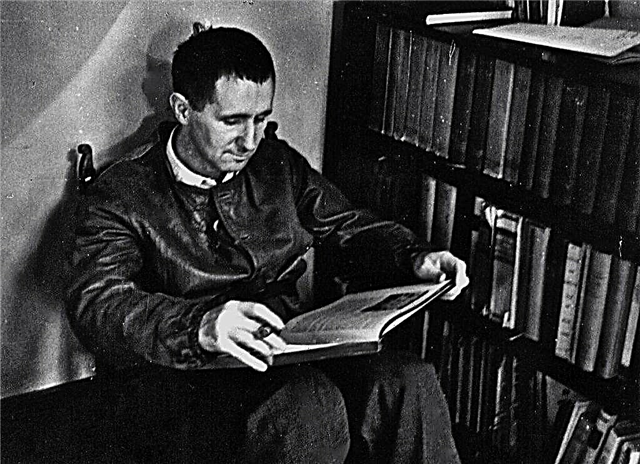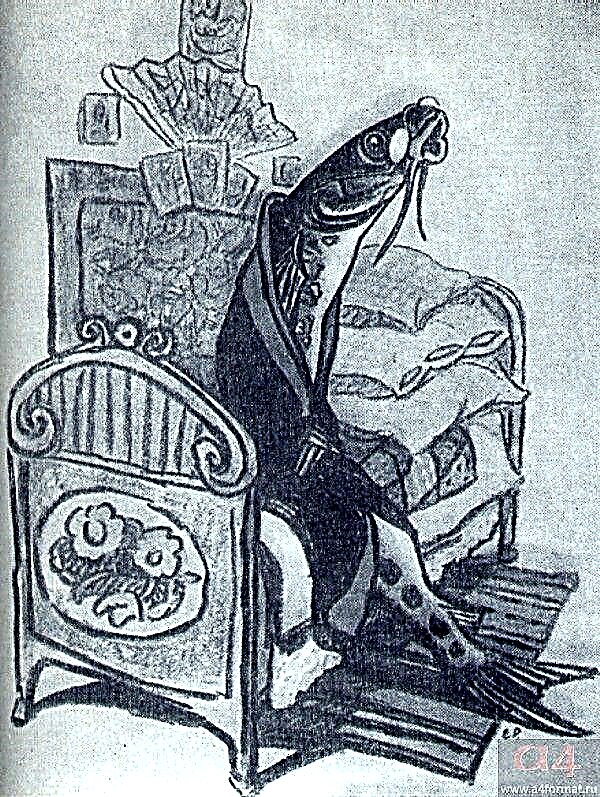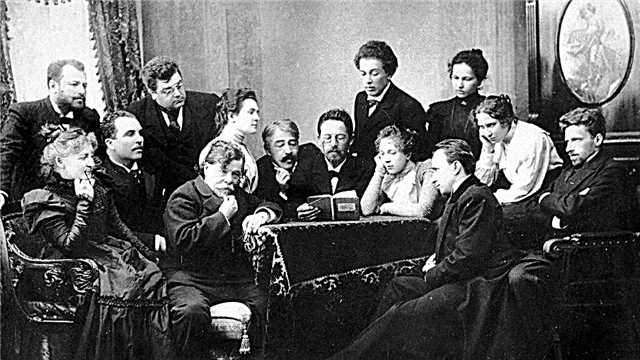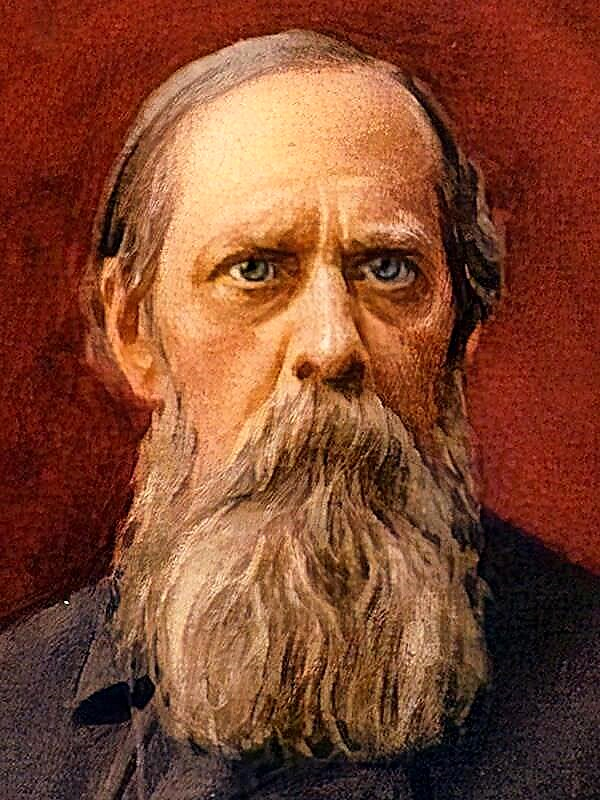A merchant lived in the city of Syracuse, and he had two twin boys, similar as two drops of water. The merchant went overseas and took with him one of the boys - named Menekhm. There was a holiday, the boy was lost in the crowd; he was picked up by another merchant - from the city of Epidamna, he took him away, adopted him, and then he found his wife and left all his fortune. The second boy remained in Syracuse; in memory of the missing, it was renamed and also called Menekhm. He grew up, went in search of his brother, traveled all over the cities for a long time, and finally reached Epidamna. This is where the two twins collided, Menehm of Epidamna and Menehm of Syracuse, and it is clear that a lot of confusion and misunderstanding came out of it. Confusion is when Menehm of Epidamus is mistaken for Menehm of Syracuse or vice versa; a misunderstanding is when Menehm of Epidamna is mistaken for Menehm of Epidam, but ascribe to him the deeds of Menehm of Syracuse, or vice versa.
On the stage is the city of Epidamn, there are two houses, in one - the wife of Menehm of Epidamn, in the other - hethera, his mistress. A spectator comes out to Menehm Epidamnsky nicknamed the Table Brush - because he will not leave him a bit at the table, he praises his master: he lives freely, he loves to eat and treats others. So the owner himself leaves the house, scolding a jealous wife; he stole a new cloak from her and carries it as a gift to his mistress. She is happy with the gift and, in gratitude, orders the cook dinner for three. “For ten,” the cook corrects, “the Eating Brush will eat for eight.”
Menehm of Epidamna with a freeloader go to the square on business, and from the pier he is with his slave Menehm of Syracuse, who came to look for his brother. Of course, both the cook and the getter think it is Menehm of Epidamna, and cheerfully greet him: this is the first confusion. “Listen,” says Heter, “take this stolen cloak in the changing room so that your wife does not recognize me!” Menehm of Syracuse is afraid that he has nothing to do with it, and his wife did not steal a raincoat, and he doesn’t have a wife, and in general he is here for the first time. But, seeing that you can’t convince a woman, and you can probably appropriate a cloak, he decides to have dinner with the beauty and play along with her: “I was joking, of course, I am your sweet one.” They go to feast, and the slave Menehm sends to the tavern.
Then the outraged Brush appears: he is sure that it was his breadwinner who treated himself without him, and is attacking Menehm of Syracuse with reproaches. This is the second confusion. He does not understand anything and drives him away. The offended freeloader goes to tell everything about the master's wife. She is furious; both sit down to wait for the culprit. And Menehm Epidamnsky, the local one, is right there: he is returning from the square angry, cursing himself for having gotten involved in a lawsuit there and that is why he did not rush to a feast to the getter. The wife and the parasite attack him with reproaches, the wife - for the stolen cloak, the parasite - for dinner eaten without him. This is the first misunderstanding. He fights off, but his wife says: “I won’t let you go to the doorway until you bring me the cloak back!” - and slams the door. “It didn’t hurt!” - the husband grumbles and resolutely goes to the getter - for comfort and for the cloak. But here he runs into trouble. “What are you talking nonsense, you yourself took the cloak in the changing room, do not fool me!” - yells to him. This is the second misunderstanding. She also slams the door in front of him; and Menehm of Epidae leaves wherever his eyes look.
Meanwhile, Menehm of Syracuse with a cloak in his hands, not finding his slave in the tavern, returns in bewilderment. The wife of Menehm of Epidamns takes him for a repentant husband, but for the sake of order he still grumbles at him. This is the third confusion. Menehm of Syracuse does not understand anything, a quarrel begins, more and more fierce and fiercer; woman calls for help of her father. The old man knows his daughter well - "from such a grumpy wife, anyone will lead a mistress!" But stealing from a wife is too much, and he too begins to admonish an imaginary son-in-law. This is the fourth confusion. Has he lost his mind that he will not recognize his own? Reckless Menehm really pretends to be insane - and, like Orestes in tragedy, begins to shout: “I hear, I hear God's voice! he tells me: take the torch, burn it, burn their eyes! .. ”A woman hides in the house, the old man runs after the doctor, and Menehm of Syracuse is saved while he is safe.
Menehm Epidamnsky is returning, and to meet him is father-in-law and a doctor reproached for the act of rabies: this is the third misunderstanding. Menehm replies with swearing. "Yes, he really is violent!" - the doctor exclaims and calls for the help of four dozen slaves. Menehm is barely fighting off them, when suddenly there is unexpected help. The slave of Menehm of Syracuse, not waiting for his master in the tavern, went to look for him, otherwise without supervision he always gets into trouble! Troubles are evident: here some guys in broad daylight seem to knit just his master! This is the fifth confusion. The slave rushes to help the imaginary master, together they scatter and disperse the rapists; in gratitude, the slave asks to be released. To let loose another man’s slave to Menehma of Epidamna does not cost anything: “Go, I do not hold you!” - And Menehm goes off again to try his luck at getters.
The slave, delighted, rushes to the tavern to collect his belongings and immediately encounters his real master, Menehm of Syracuse, who did not even think of letting him go free. Quarrels and reproaches begin. This is the fourth misunderstanding. As long as they have a quarrel, the same quarrel is heard from the house of getters, and Menehm Epidamnsky appears on the threshold after a new setback. Here, finally, the two brothers collide on the scene face to face. The slave is at a loss: who is his master? This is the sixth, and last, confusion. The clarification begins: both are Menehmas, both come from Syracuse, and the father is the same ... Truth triumphs, freedom is finally granted to the slave, Menehm of Epidamna joyfully prepares to move to his homeland, to his brother, to Syracuse, and the slave announces to the public that on the occasion of departure, all good is sold out: a house, land, all utensils, servants “and a lawful wife - if only he finds one for such a buyer!” That is where the comedy ends.



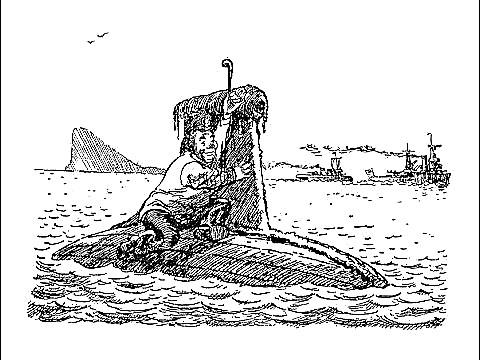

 The richest man in Babylon
The richest man in Babylon